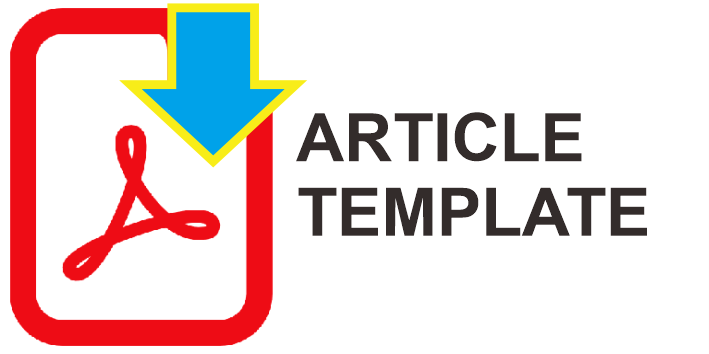KAJIAN ATAS IMPLEMENTASI AKUNTANSI BERBASIS AKRUAL PADA PEMERINTAH PUSAT INDONESIA TAHUN 2015-2017
Komang Ayu Kumaradewi(1*), Abdul Halim(2)
(1) Universitas Gadjah Mada, Yogyakarta
(2) Departemen Akuntansi, Fakultas Ekonomika dan Bisnis, Universitas Gadjah Mada, Yogyakarta
(*) Corresponding Author
Abstract
Abstrak
Penelitian ini bertujuan untuk mengkaji persepsi partisipan atas implementasi akuntansi berbasis akrual di tingkat pemerintah pusat Indonesia pada tiga tahun pertama, serta persepsi partisipan atas masa depan penerapannya. Menggunakan metode kualitatif dengan rancangan fenomenologi interpretif, penelitian ini memilih empat orang partisipan wawancara mendalam dan sembilan orang peserta focus group discussion (FGD). Seluruhnya ialah pihak-pihak yang secara langsung terlibat dalam implementasi akuntansi akrual di Indonesia. Berdasarkan hasil analisis menggunakan Interpretive Phenomenology Analysis (IPA), penelitian ini menyimpulkan bahwa persepsi partisipan atas implementasi akuntansi akrual untuk tahun 2015-2017 bernuansa positif. Faktor utama yang dianggap mendukung kualitas penerapan yaitu kesiapan regulasi, pembinaan SDM, dan dukungan teknologi. Persepsi partisipan atas masa depan penerapan juga bernuansa positif, dengan penekanan pada penyesuaian dengan perkembangan teknologi, penguatan kemampuan analisis data, serta pemanfaatan informasi akrual untuk pengambilan keputusan. Selain itu, terdapat aspek Teori Penatalayanan yang ditemukan dalam proses implementasi yaitu motivasi intrinsik, identifikasi diri dengan organisasi, serta budaya kolektivisme dan rentang kekuasaan yang rendah.
Keywords
Full Text:
PDFReferences
DAFTAR PUSTAKA Abeysinghe, Chandrasiri & Dinushika Samanthi. 2016. “Accrual Basis dan Political Interest in Public Sector Accounting. The Case of a Municipal Council in Sri Lanka.” International Journal of Academic Research in Accounting, Finance and Management Sciences Vol. 6, No. 3, July 2016: 58–68. Adhikari, Pawan and Frode Mellemvik. 2011. “The Rise and Fall of Accruals: A Case of Nepalese Central Government.” Journal of Accounting in Emerging Economies, Vol. 1 Issue: 2, pp.123-143. Adriana, T., & Alexandra, M. 2006. “Cash Versus Accrual Accounting in Public Sector.” Studia Universitatis Babes Bolyai Oeconomica, 1990. Available at SSRN: https://ssrn.com/abstract=906813 Athukorala, Sarath Lakshman and Barry Reid. 2003. “Accrual Budgeting and Accounting in Government and its Relevance for Developing Member Countries.” © Asian Development Bank. Bunea-Bontas, C. A., & Petre, M. C. 2009. “Arguments For Introducing Accrual Based Accounting In The Public Sector.” Available at SSRN: 1491663 Carlin, Tyrone M. 2005. “Debating The Impact of Accrual Accounting and Reporting In The Public Sector.” Financial Accountability & Management, 21(3), August 2005, 0267-4424. Cavanagh, et al. 2016. “Implementing Accrual Accounting in the Public Sector.” IMF Technical Notes and Manuals 16/06. Creswell, J. W. 2016. Research Design: Pendekatan Metode Kualitatif. Kuantitatif dan Campuran, 4th ed, Yogyakarta, Pustaka Pelajar. Davis, et al. 1997. “Toward A Stewardship Theory of Management.” Academy of Management Review, 22(1), 20-47. FEE. 2003. “The Adoption of Accrual Accounting and Budgeting by Governments (Central, Federal, Regional, and Local).” Gruening, G. 2001. “Origin and Theoretical Basis of New Public Management.” International Public Management Journal, 4(1), 1-25. Hennink, M., Hutter, I., & Bailey, A. 2011. Qualitative Research Methods. London: Sage. Hofstede, G. and Bond, M.H. 1984. “Hofstede's Culture Dimensions: An Independent Validation Using Rokeach's Value Survey.” Journal of Cross-Cultural Psychology, 15(4), pp.417-433. Hood, C. 1995. “The “New Public Management.” In The 1980s: Variations On A Theme.” Accounting, Organizations and Society, 20(2-3), 93-109. IFAC. 2003. “Trantition to The Accrual Basis of Accounting: Guidance for Governments and Government Entities.” Kementerian Keuangan RI. 2017. Fitch: Peringkat Investasi Indonesia Naik Jadi BBB. Diakses di: https://www.kemenkeu.go.id/publikasi/berita/fitch-peringkat-investasi-indonesia-naik-jadi-bbb/ pada 30 Juni 2019. ____________ 2018. Indonesian Treasury Update Volume 3 No. 3 Periode Mei-Juni 2018. Diakses di: http://www.djpbn.kemenkeu.go.id/portal/images/itup/itup_vol_3_3_2018.pdf pada 30 Juni 2019. –––––––––––– 2018. Akuntansi dan Pelaporan Keuangan Pemerintah Indonesia dari Masa ke Masa. Diakses di: https://djpb.kemenkeu.go.id/portal/data-publikasi/publikasi-cetak/akuntansi-dan-pelaporan-keuangan-dari-masa-ke-masa.html pada 13 Juni 2019. Khan, A., & Mayes, S. 2009. “Transition to Accrual Accounting.” International Monetary Fund. Kober, et al. 2010. “Mind Your Accruals: Perceived Usefulness Of Financial Information The Australian Public Sector Under Different Accounting Systems.” Financial Accountability & Management, 26(3), August 2010, 0267-4424. Kumar, A. 2012. Using phenomenological research methods in qualitative health research. International Journal of Human Sciences [Online]. (9)2, 790-804. Likierman, A. 2000. “Changes to Managerial Decision-Taking in U.K. Central Government.” Management Accounting Research, Vol. 11, pp. 253–61. Mills, D. E., & Keast, R. L. 2009. “Achieving Better Stewardship of Major Infrastructure Assets Through Configuration of Governance Arrangements Utilising Stewardship Theory.” 3th International Research Society for Public Management Conference (IRSPM XIII), Fredericksberg, Denmark, 6-8 April, IRSPM Nagendrakumar, et al. 2015. “The Development of Public Sector Accounting and Financial Reporting in Sri Lanka.” International Journal on Governmental Financial Management - Vol. XV, No 2. Ofoegbu, G. N. 2014. “New Public Management and Accrual Accounting Basis for Transparency and Accountability in The Nigerian Public Sector.” IOSR Journal of Business and Management, 16(7), 104-113. Peraturan Pemerintah Nomor 71 Tahun 2010 Tentang Standar Akuntansi Pemerintah Paulsson, G. 2006. “Accrual Accounting in The Public Sector: Experiences From The Central Government in Sweden.” Financial Accountability & Management, 22(1), 47-62. Pietkiewicz, I. & Smith, J.A. (2012) Praktyczny przewodnik interpretacyjnej analizy fenomenologicznej w badaniach jakościowych w psychologii. Czasopismo Psychologiczne, 18(2), 361-369. Pollanen, R. and K. Loiselle-Lapointe. 2012. “Accounting Reform in the Government of Canada: Exploratory Evidence on Accrual Accounting Adoption and Impact.” Financial Accountability & Management, 28: 359-377. Prabowo, TJW. 2015. “The Adoption of Accrual Accounting in Indonesia: A Story of Seeking Legitimacy, Developing Hegemony and Confusions.” Available at: http://hdl.handle.net/1959.14/1069720. Ranjani, Chitra & Alfred N., Ambe. 2016. “Assessing Public Sector Accounting and Financial Reforms in Cameroon and Nigeria.” International Journal of Accounting & Business Finance, University of Jaffna, Sri Lanka. Volume 2. Rowles, Tom. 2004. “Accrual Accounting in the Public Sector: Its Usefulness in Economic Decision Making.” Journal of Finance and Management in Public Service, vol 3 number 2:62-76. Salvatore, C., & Del Gesso, C. 2013. “Accrual Accounting in Italian Local Governments in The Context of Public Sector Managerial Changes.” In Proceedings of 8th Annual London Business Research Conference. London: Imperial College. Schillemans, T. 2013. “Moving Beyond The Clash of Interests: On Stewardship Theory and The Relationships Between Central Government Departments and Public Agencies.” Public Management Review, 15(4), 541-562. Shaw, R. Paul. 2004. “New Trends in Public Sector Managemenet in Health. Applications in Developed and Developing Countries.” Health, Nutrition and Population (HNP) Discussion Paper. Tickell, G. 2010. “Cash to Accrual Accounting: One Nation's Dilemma.” International Business & Economics Research Journal, 9(11), 71-78. Van Slyke, D. M. 2006. “Agents or Stewards: Using Theory to Understand The Government-nonprofit Social Service Contracting Relationship.” Journal of Public Administration Research and Theory, 17(2), 157-187. Wynne, A. 2007. “Is The Move to Accrual Based Accounting A Real Priority for Public Sector Accounting.” Public Fund Digest, 6(1), 25-39.
Article Metrics
Refbacks
- There are currently no refbacks.
This work is licensed under a Creative Commons Attribution 4.0 International License.
______________________________________________________________________________________________________
2302 - 1500




